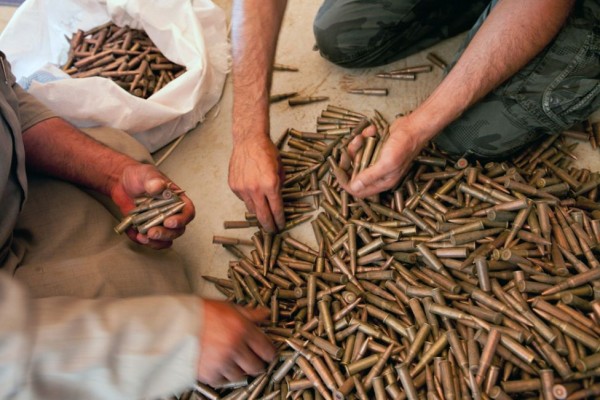
Anniversaries are dangerous days. There is often a flash of attention, lots of words and supposedly deep thought and meaningful promises. Then the sun goes down, and life goes on as before. The world often notes an anniversary without real thought or determination on how to take the steps needed to make it meaningful.
As the second anniversary of the civil war in Syria passes, there continues a swirl of uncertainty with that nation and similarities to the sad disillusionment of past anniversaries elsewhere.
Among the items on Syria’s anniversary table: Military leaders of the Syrian rebel force denounce the new head of the civilian political opposition, Iraq continues to let Iranian flights to Syria pass overhead uninterrupted, reports of the one million refugee has crossed the border and of increased military aid to the rebels, new worries about chemical weapons, and Israel and Turkey making up with each other, which has longer term implications for Syria and the broader Middle East power dynamic.
http://www.guardian.co.uk/world/2013/mar/25/syria-qatari-influence-rebels-arab-league
Now, what will tomorrow bestow?
To frame that response, perhaps other March anniversaries may lend perspective. This same time period has brought the 10th anniversary of the invasion of Iraq, the 25th anniversary of the chemical gassing of Kurds in Halabja, the 35th anniversary of the United Nation’s ongoing mission in Lebanon and the 40th anniversary of the U.S. troop exit from South Vietnam. What lessons have been learned from those anniversaries and, crucially, what knowledge has been applied other than March being an ominous month for anniversaries?
Sadly, very little.
The uprising started with anti-government protests on March 15, 2011, escalated as residents of Deraa took to the streets after troops arrested teenagers who scrawled anti-regime graffiti on a wall, then metastasized into a civil war with an estimated 70,000 people killed, according to the U.N. The International Committee of the Red Cross (ICRC) said it is “deplorable” that people are getting used to the fact so many civilians are being killed each day in Syria. “These ongoing violations of international humanitarian law and of basic humanitarian principles by all sides must stop,” said Robert Mardini, who heads the Red Cross’ regional operations.
http://www.aljazeera.com/news/middleeast/2013/03/2013315112715330950.html
Good luck with that demand.
With the exception of Aleppo, which is divided between loyalists and insurgents, the government still maintains its hold on Syria’s largest cities. It has resorted increasingly to airstrikes, artillery barrages and surface-to-surface missile attacks to reach rebel-held areas where loyalist ground troops no longer operate.
Now, as the third year of the war begins, we see more of the stories that were written about the Bosnia conflict emerging from Syria – including such “down the road” stories as the U.N. warning about a lost generation of young people and how those crucial middle class skilled workers and thinkers are fleeing to seek lives elsewhere.
http://www.irinnews.org/Report/97736/Syria-s-brain-drain-another-twist-to-the-country-s-crisis
The son of a former colleague is doing a paper on genocide and recently asked me some questions about the genocide in Bosnia. Among those posed: what did the world learn from Bosnia? The question pinpoints a key issue; the answer is realizing the crevice between learning and then applying that knowledge.
The world cannot always stop genocide, yet it can often take steps to mitigate in and sometime stop it. It chooses not to.
The Bosnia intervention lesson is clear: The bullies would continue until stopped and, like many bullies, they were not going to mess with someone stronger. While it was fun for them to humiliate and shoot at U.N. troops from some nations, when Canadians and British were involved, there was less of that. And when their fear – that a U.S. backed NATO mission would occur – came true, they backed down.
That lesson is specific to Bosnia in the 1990s and not easy transferable to Syria. Assad is fighting for his life, unlike the Bosnia Serbs who were fighting for power and greed. Careful specific steps are needed.
The Washington Post does not want caution. It predicts Syria will crack into pieces controlled by rival authorities, with fighting along sectarian lines and between extremist and moderate Sunnis, fighting will spread into Lebanon and Iraq, with the possible use of chemical or biological weapons. “The means to prevent this implosion are the same that could have stopped the ignition of the civil war: aggressive intervention by the United States and its allies to protect the opposition and civilians. This would not require ground troops, only more training and the supply of heavy weapons to the rebels, and airstrikes to eliminate the regime’s warplanes, missiles and, if necessary, chemical weapons. The recognition of an alternative government led by the civilian Syrian National Coalition would send the message to wavering regime supporters that it was time to defect and would help to isolate al-Qaeda before it is too late,” the Post opined.
Yet those steps are already feeble as the Syrians themselves resort to bickering. Today in Syria, a common thread is optimism running low and anger increasing at the west.
Anniversaries in March. Beware those ides.
(Photo credit: Global Post)